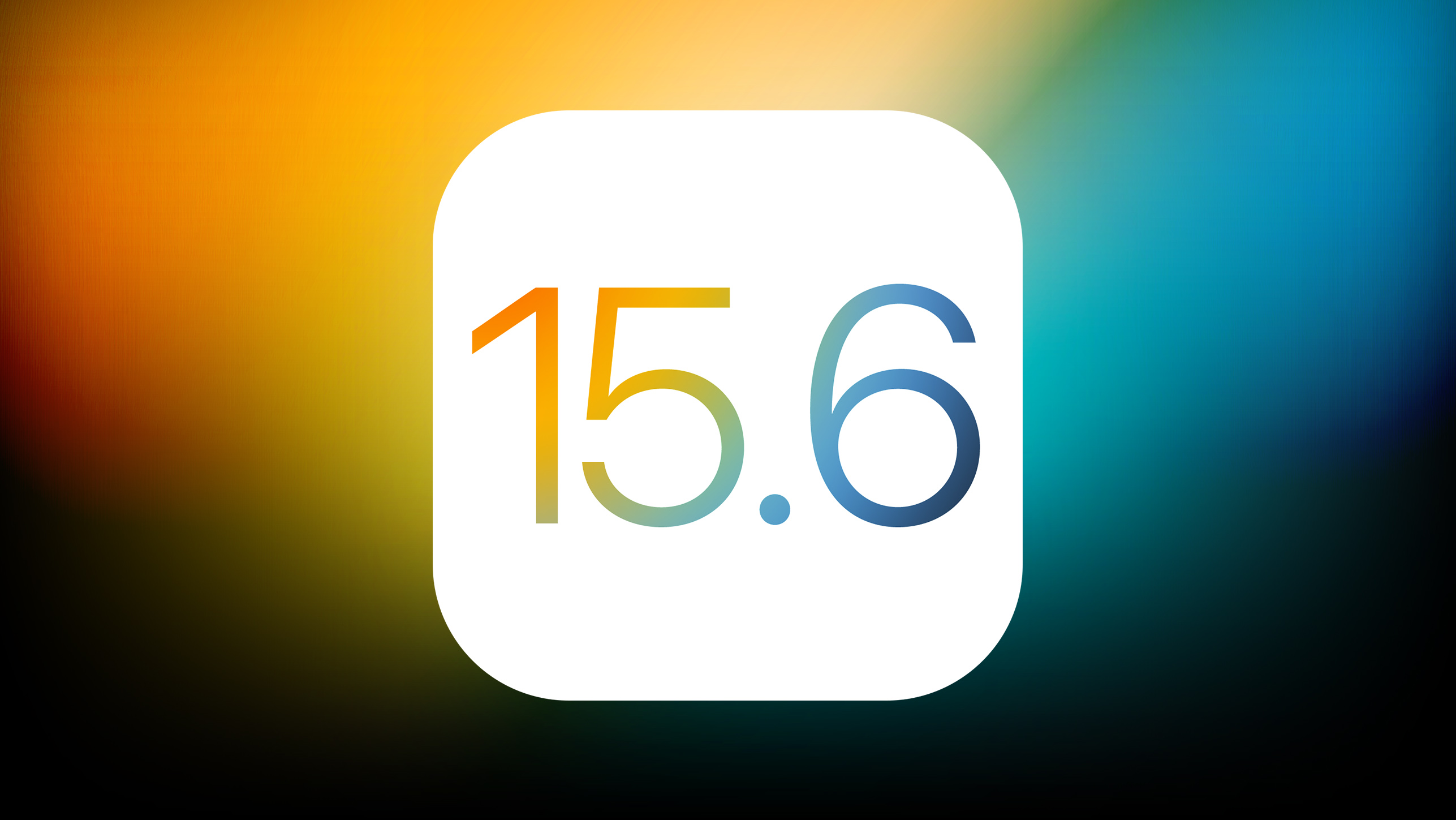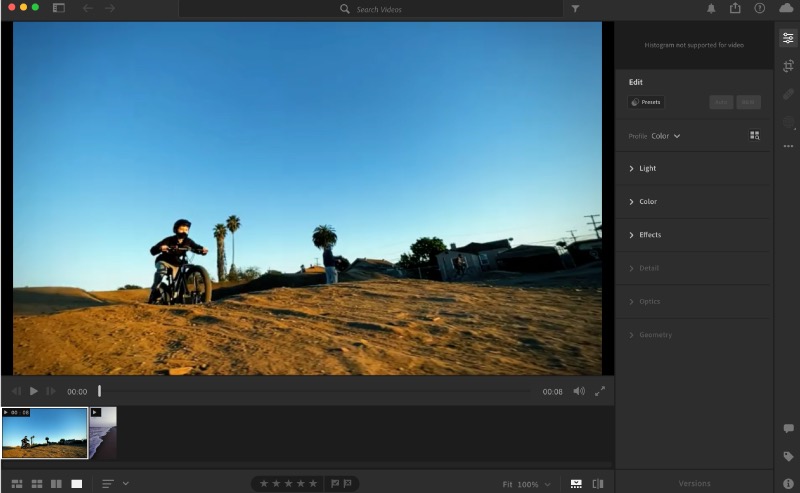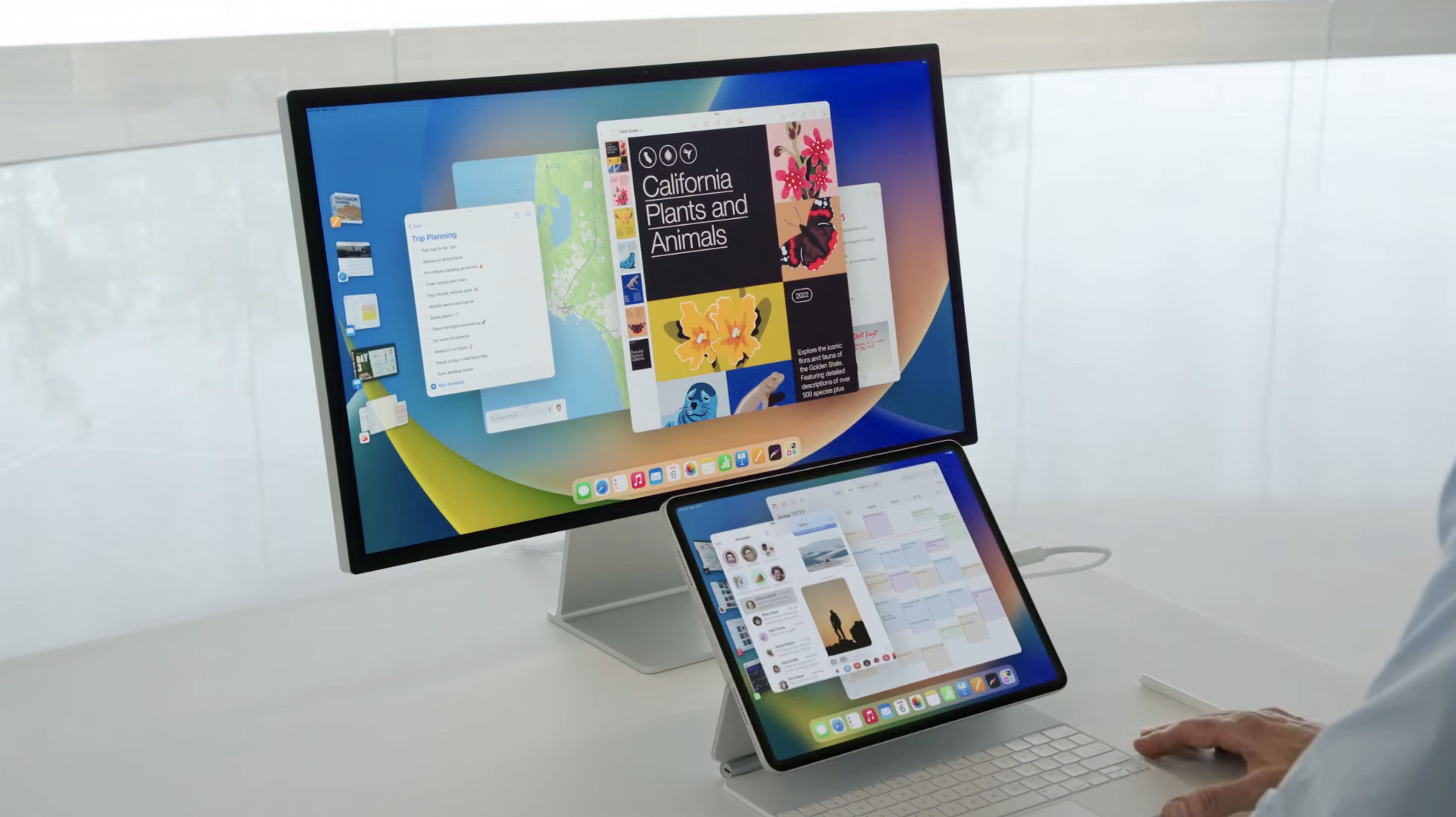Apple iPhone 16: The Latest Rumors and Our Wishlist
Apple’s iPhone 15 series, while still relatively new, has garnered attention in the world of...
Read MoreApple today seeded the third betas of upcoming iOS 15.6 and iPadOS 15.6 updates to developers for testing purposes, with the new software coming two weeks after the release of the second beta.

Developers can download iOS 15.6 and iPadOS 15.6 through the Apple Developer Center or over the air after the proper profile has been installed on an iPhone or iPad.
We don’t yet know what might be introduced in iOS 15.6 and iPadOS 15.6, as Apple has now implemented all of the features that were announced as coming in the iOS and iPadOS 15 updates, and work on iOS 15 is likely winding down with iOS 16 approaching.
There were no new features discovered in the first two betas of iOS 15.6 and iPadOS 15.6, suggesting these are updates focusing on bug fixes and other under-the-hood improvements.
iOS 15.6 and iPadOS 15.6 could be some of the last updates to iOS 15 and iPadOS 15 as Apple is now working on iOS 16, which is set to be released this fall.
Apple has also seeded new developer betas of tvOS 15.6 and watchOS 8.7.
This article, "Apple Seeds Third Betas of iOS 15.6 and iPadOS 15.6 to Developers" first appeared on MacRumors.com
Discuss this article in our forums
Read MoreAdobe today updated its Lightroom apps for Mac and iOS, bringing a set of new image editing features as well as the ability to edit video for the first time.

With the release of version 5.4 for Mac and 7.4 for iOS, Lightroom now enables you to edit videos using the same controls that are used for photos. You can trim videos, adjust color and exposure, and apply presets optimized for video.
Meanwhile, Adobe has added a new class of AI-powered adaptive presets that allow you to perform one-click edits to the sky or subject in photos, while a new Preset Amount Slider gives you the ability to control the intensity of a preset.

Elsewhere, there’s a new Red Eye Removal feature that automatically finds and removes red eyes with a single click, and a new Compare view lets you compare photos side-by-side.
There are also more than 50 new, handcrafted premium presets designed for videos, portraits, and live concert photos, and the community-based Discover section is now searchable, allowing you to more easily find topics of interest as well as photographers you’d like to follow.

Also new in this version is a new Invert Mask option that lets you invert masks at both the group and component levels, and you can also now choose to Duplicate & Invert masks.
In addition, the Select Sky and Select Subject AI masks can now be copied and pasted to other photos and they will be recomputed automatically, so there’s no need to manually apply the new masks to each photo.
Lightroom for Mac is available through Adobe’s Creative Cloud 1TB Lightroom plan for $9.99 per month, or through its 20GB and 1TB Photography plans, which bundle Photoshop and Lightroom together and cost $9.99 and $19.99 per month, respectively.
Lightroom for iPhone and iPad can be downloaded from the App Store for free and include several in-app premium storage subscription options starting from $1.99 per month for 40GB.
This article, "Adobe Lightroom 5.4 Update Adds Ability to Edit Video, New Adaptive Presets and Mask Options" first appeared on MacRumors.com
Discuss this article in our forums
Read MoreMozilla today announced that it is rolling out Total Cookie Protection by default to all Firefox users worldwide, expanding on prior releases that included the Total Cookie Protection feature on an opt-in basis.

To use Total Cookie Protection prior to now, Firefox users could opt in to the Strict Tracking Protection feature, but it was not turned on for all users as a default setting. Mozilla has been testing Total Cookie Protection in Firefox for months with the opt-in functionality prior to rolling it out for everyone.
Total Cookie Protection is designed to prevent trackers from using cookies to track user browsing history across different websites.

According to Mozilla, the feature "builds a fence around cookies," and limits them to the site that you’re browsing, preventing cross-site tracking. Firefox says that the Total Cookie Protection feature leaves "Chrome and Edge in the dust," and that it would like to see Google and Microsoft follow its lead to offer better protection for users. Apple’s Safari browser has similar anti-tracking features that prevent cross-site tracking and hide a user’s IP address.
Firefox can be downloaded from the Mozilla website for free.
This article, "Firefox’s Total Cookie Protection Now Available to All Users by Default" first appeared on MacRumors.com
Discuss this article in our forums
Read MoreApple’s revenue from its music and gaming subscription services is expected to jump 36% to $8.2 billion annually by 2025, according to JP Morgan (via Reuters).

The U.S. investment bank’s analyst Samik Chatterjee on Monday said Apple Music and Apple Arcade are likely to have a combined subscriber base of about 180 million by 2025, with 110 million users paying for the company’s music services and 70 million for gaming.
Launched in 2015 and now the second biggest music streaming service after Spotify, Apple Music is expected to account for $7 billion revenue by 2025. Apple Arcade, which launched in 2019, is estimated to pull in $1.2 billion.
Apple doesn’t break down sales in its Services category, but the company reported $19.82 billion for the March quarter. Apple’s Services segment includes the App Store, Apple TV+, Arcade and Apple Music.
This article, "Apple Music and Apple Arcade to Earn $8.2 Billion Annual Revenue by 2025, Says JP Morgan Analyst" first appeared on MacRumors.com
Discuss this article in our forums
Read MoreGermany’s Federal Cartel Office, the Bundeskartellamt, has initiated proceedings against Apple to investigate whether its tracking rules and anti-tracking technology are anti-competitive and self-serving, according to a press release.
![]()
The proceeding announced today will review under competition law Apple’s tracking rules and specifically its App Tracking Transparency Framework (ATT) in order to ascertain whether they are self-preferencing Apple or being an impediment to third-party apps. Andreas Mundt, President of the Bundeskartellamt, said of the proceeding:
"We welcome business models which use data carefully and give users choice as to how their data are used. A corporation like Apple which is in a position to unilaterally set rules for its ecosystem, in particular for its app store, should make pro-competitive rules. We have reason to doubt that this is the case when we see that Apple’s rules apply to third parties, but not to Apple itself. This would allow Apple to preference its own offers or impede other companies. Our proceeding is largely based on the new competencies we received as part of the stricter abuse control rules regarding large digital companies which were introduced last year (Section 19a German Competition Act – GWB). On this basis, we are conducting or have already concluded proceedings against Google/Alphabet, Meta/Facebook and Amazon.
Introduced in April 2021 with the release of iOS 14.5 and iPadOS 14.5, Apple’s App Tracking Transparency Framework requires that all apps on iPhone and iPad ask for the user’s consent before tracking their activity across other apps. Apps that wish to track a user based on their device’s unique advertising identifier can only do so if the user allows it when prompted.
Apple said the feature was designed to protect users and not to advantage the company. However, the Bundeskartellamt’s preliminary findings indicate that while users can also restrict Apple from using their data for personalized advertising, Apple "is not subject to the new and additional rules of the App Tracking Transparency Framework."
The German competition regulator’s proceeding is subsequent to an earlier proceeding initiated against Apple in June 2021 that was set up to look into claims of anti-competitive behavior related to the App Store, its products, and other services.
"In this context," said the regulator, "the possibilities for Apple itself to combine data across services and users’ options regarding the processing of their data by Apple can be relevant, just like the question whether these rules may lead to a reduction of users’ choice of apps financed through advertising."
Many advertisers have been impacted by ATT, but Facebook has been the most vocal and critical of the new change. Ever since Apple began to beta test the framework, Facebook accused Apple of impacting small businesses who rely on advertising as a means of keeping their doors open. Facebook also claimed that the framework was anti-competitive because it gives Apple an upper hand for running its own mobile advertising business on iOS devices.
An October 2021 report by the Financial Times claimed that ATT had resulted in a "windfall" for Apple’s advertising business since its introduction. The report asserted that Apple’s share of the mobile app advertising market tripled in the six months after the feature was introduced.
Apple has disputed suggestions that its ATT framework has unfairly benefitted the company to the detriment of third-parties. Earlier this year it commissioned a study into the impact of ATT that was conducted by Columbia Business School’s Marketing Division. The study concluded that Apple was unlikely to have seen a significant financial benefit since the privacy feature launched, and that claims to the contrary were speculative and lacked supporting evidence.
This article, "Apple Faces German Antitrust Probe Into App Tracking Transparency" first appeared on MacRumors.com
Discuss this article in our forums
Read MoreGoogle Maps is gaining a new feature on iOS and Android that estimates the amount of money you’ll have to pay in tolls for a chosen route.

Before you set off, you’ll now see the estimated toll price to your destination in the app. Google says the road information is sourced from local tolling authorities, and includes factors like having a toll pass or not, what day of the week it is, and how much the toll is expected to cost at the specific time you’ll be crossing it.
Options are available within the app’s settings to display toll prices with or without a toll pass – Google notes that the price can change in many places depending on the payment method used. There is also an option to avoid routes crossing toll roads entirely.
For the planner friend: this new feature is for you. 🙏
Now when you’re planning trips big and small, you can check estimated toll prices before you pick a route—and spend what you save on road snacks. pic.twitter.com/Lfy8s2TXQU
— Google Maps (@googlemaps) June 13, 2022
Google says the toll prices feature is rolling out now and is available for nearly 2,000 toll roads in the U.S., India, Japan, and Indonesia, with coverage for more countries coming soon.
This article, "Google Maps Now Estimates Toll Charges for Your Journey" first appeared on MacRumors.com
Discuss this article in our forums
Read MoreFollowing the WWDC keynote last week, Apple’s software engineering chief Craig Federighi spoke with TechCrunch‘s Matthew Panzarino about the new Stage Manager feature for iPad and Mac. Notably, he elaborated on Stage Manager being limited to M1 iPads.

On the iPad, Stage Manager allows users to resize apps into overlapping windows for an improved multitasking experience. Stage Manager also fully supports an external display with up to 6K resolution, allowing users to work with up to four apps on the iPad and up to four apps on the external display simultaneously.
In a statement shared with Rene Ritchie last week, Apple asserted that Stage Manager "requires large internal memory, incredibly fast storage, and flexible external display I/O, all of which are delivered by iPads with the M1 chip." Federighi elaborated on that rationale in his chat with Panzarino, telling him that the power of the M1 chip ensures that all apps being used in Stage Manager are "instantaneously responsive."
"It’s only the M1 iPads that combined the high DRAM capacity with very high capacity, high performance NAND that allows our virtual memory swap to be super fast," said Federighi. "Now that we’re letting you have up to four apps on a panel plus another four – up to eight apps to be instantaneously responsive and have plenty of memory, we just don’t have that ability on the other systems," such as the previous-generation iPad Pro.
Released in April 2021, the iPad Pro with an M1 chip is available with up to 16GB of RAM, compared to 6GB in the previous iPad Pro. Apple also advertises the M1 iPad Pro as having 2x faster storage and up to 40% faster GPU performance compared to the previous model. Apple also released an iPad Air with the same M1 chip in March 2022.
"We really designed Stage Manager to take full advantage [of the M1 chip]," said Federighi. "If you look at the way the apps tilt and shadow and how they animate in and out. To do that at super high frame rates, across very large displays and multiple displays, requires the peak of graphics performance that no one else can deliver."
"When you put all this together, we can’t deliver the full Stage Manager experience on any lesser system," added Federighi. "I mean, we would love to make it available everywhere we can. But this is what it requires. This is the experience we’re going to carry into the future. We didn’t want to constrain our design to something lesser, we’re setting the benchmark for the future."
As for Stage Manager on the Mac, Federighi said there are already "so many different ways" to multitask on macOS, such as using Mission Control or the Command-Tab keyboard shortcut to switch between apps, and Stage Manager is simply another tool in the toolbox.
"On the Mac, there are so many different ways to work. Some people use spaces, some people are in and out of Mission Control. Some people are command tab people, some people like to create a mess, some people clean up their messes and some people use minimization. I mean, there’s no wrong answer here, there are a lot of valid ways to work on the Mac."
"If 20% of the users on the Mac end up saying that this is another great tool in the quiver for them… that’s fantastic," he said.
This article, "Apple’s Craig Federighi Further Explains Why Stage Manager is Only for M1 iPads" first appeared on MacRumors.com
Discuss this article in our forums
Read MorePrior to the launch of new iPhone models, case makers often create dummy models based on leaked schematics and specifications. We’ve known about the design of the iPhone 14 lineup for some time now, and this week, we got a set of dummy units to see the design updates for ourselves.
Because there’s a lot of money in having a case ready for a new iPhone ahead of launch, dummy models are often quite accurate, so these fake iPhone 14 devices give us a clear picture of what we can expect to see.

Design wise, the iPhone 14 models are going to look a lot like the iPhone 13 models, but with a notable exception – there’s not going to be an iPhone 14 mini. Instead, Apple is making two 6.1-inch iPhones (iPhone 14 and iPhone 14 Pro), along with two 6.7-inch iPhones (iPhone 14 Max and iPhone 14 Pro Max).

For the Pro models, the notch is going to be replaced with hole and pill-shaped cutouts for the camera and the Face ID equipment. The hole and pill design is not much different from a notch, but it will free up some space and make the front cameras less obtrusive. Standard iPhone 14 models will continue to have a notch.
We know there are some minor changes to the sizes of the devices, but when comparing a dummy unit to the iPhone 13 lineup in person, it’s difficult to tell. There are tiny changes to the screen sizes of the iPhone 14 Pro models, but in day to day use, you’re not going to notice.

Camera bumps are going to be a bit thicker and wider on the Pro models to accommodate the 48-megapixel camera that Apple is adding. Standard iPhone 14 models will not see many design changes.
Weight, material, and color are factors we can’t deduce from dummy models, but rumors suggest the iPhone 14 models will have the same build as the prior-generation versions, though we could see a new featured purple color for both the standard and the Pro models.

Apple’s iPhone 14 and iPhone 14 Pro models will have more differences than ever before, with the Pro models expected to adopt an A16 chip while Apple continues to use an A15 chip in the standard models. The iPhone 14 Pro models will also have more advanced camera systems, ProMotion displays that will likely support an always-on display feature, and more.
What do you think about Apple’s plans for the iPhone 14 lineup? Let us know in the comments below.
This article, "Hands-On With iPhone 14 Models Showing New Sizes and Camera Design Updates" first appeared on MacRumors.com
Discuss this article in our forums
Read More

Recent Comments